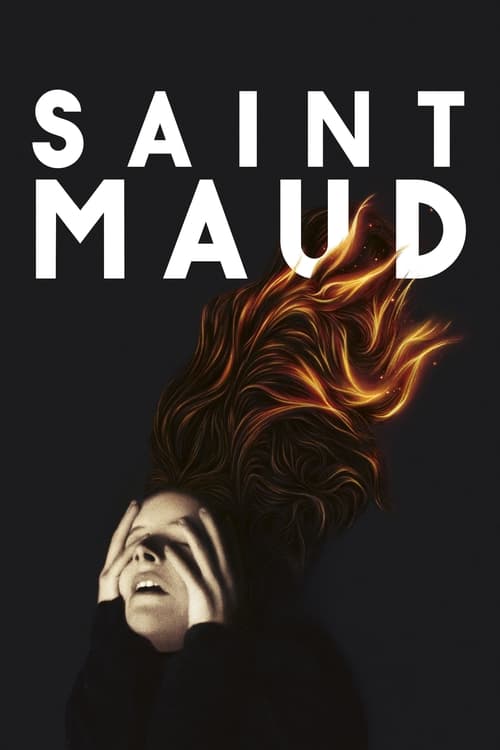Saint Maud is hard to put into words. On the surface, the movie is about Maud (Morfydd Clark), a private palliative care nurse. Maud is very religious, convinced that she is both possessed by and speaks to the spirit of God. Her client is a former famous dancer, Amanda Köhl, now dying of lymphoma. Amanda is an atheist, libertine lesbian, and Maud becomes convinced that God wants her to save Amanda’s soul.
This feels like a Misery story of unhealthy obsession. Scripts tend to look upon obsessed or mentally ill characters as threats to fear and flee, and ask us to sympathize with the people around them. Director Rose Glass follows Maud’s viewpoint instead. Maud is certainly not harmless, but Glass makes it pretty clear that Maud is Going Through Some Stuff, and it’s hard not to feel like things would have been different if she’d had more people looking out for her.
Everything I’ve read about the move describes Maud as a “recent convert to Roman Catholicism.” Maud has appropriated a lot of the trappings, but the movie doesn’t give us any evidence that she has any religious guidance apart from her own visions. Perhaps other interviews or marketing materials call her Catholic? Perhaps that is the case. From what the film gives us, it seems more appropriate to parse Maud’s problems as mental illness filtered through a spiritual lens rather than religious indoctrination.

Everyone will be wearing bedsheets in a few years, they’re so comfortable.
As if to underscore this, Amanda gives Maud a book about the English romantic poet and artist William Blake. Blake called himself Christian, but was very much outside of any church. He condemned much of organized religion, which he considered authoritarian and political, and emphasized a spiritual understanding. Blake, like Maud, felt he was in direct contact with the celestial host and had frequent visions. “I have very little of Mr. Blake’s company; he is always in Paradise,” his wife said. Blake had a wife, friends, and community to keep him tethered, however. Maud has no-one.
If you’re looking for a thrill ride, this one isn’t your jam. But Saint Maud is a frightening movie if you let it in. Glass’s screenplay is vague about whether Maud is delusional. There’s enough evidence to suggest that Maud is mentally ill. There’s also enough evidence to suggest that Maud’s religious mania results from some other dire medical condition — epilepsy, perhaps, or a brain tumor. Or, if you choose, you can believe Maud is in contact with a spirit she leans on for guidance in the absence of help.
Any of these could be true. What is wrong with Maud is not even the point. Glass’s restraint leaves a lot of room for you to think about these, and to think about other issues as well. Maud’s religion does not seem to do her any favors, but does the secular world treat her any better? Is Maud’s concern for Amanda genuine, or is her concern for Amanda’s soul more about her personal vanity? Saint Maud offers us a lot to unpack in questions of religion, mental health, and our responsibilities to each other. And like the best art, it doesn’t give much in the way of answers.


